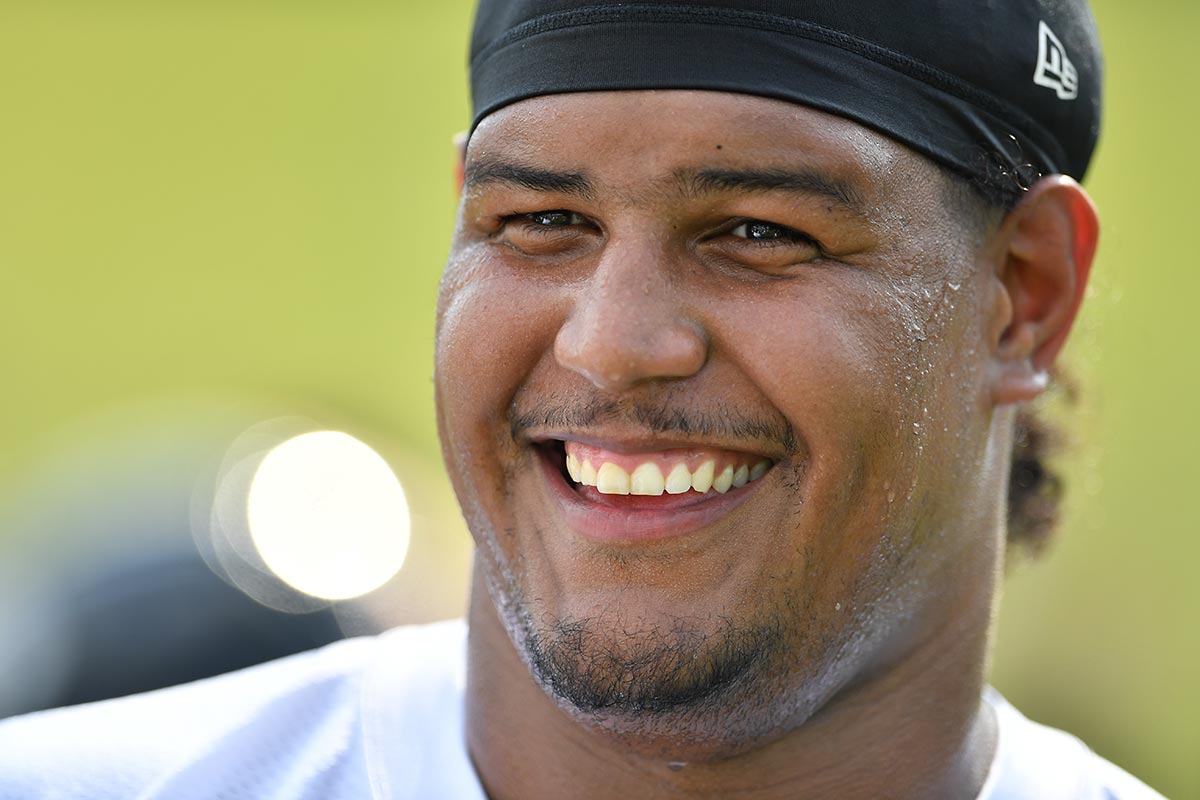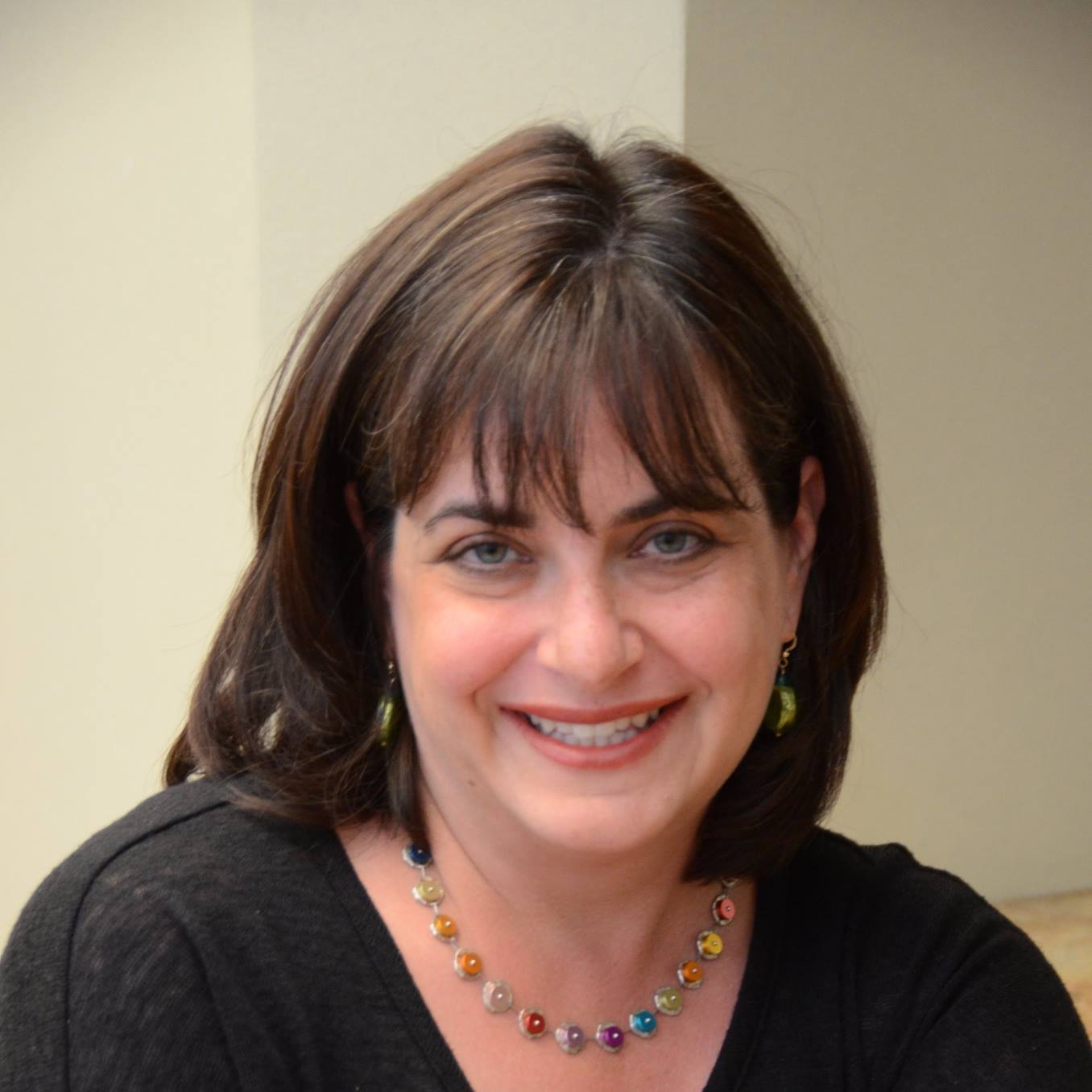Steeler Zach ‘The Hulk’ Banner, on Creating Empathy

Pittsburgh Steeler Zach Banner was about to go out on a run at 5 a.m. one day last July, when he saw a tweet about an antisemitic remark made by fellow NFLer DeSean Jackson. That morning, Banner recorded and posted a video in response, and was stunned when it brought him a flood of thank yous – from NFL owners, from USC friends (and their grandmothers,) from leading rabbis.
“There is a common misbelief among Black and brown people, and I know this from growing up and I’ve heard it and I’ve listened to it, that Jewish people are just like any other white race. You mix them up with the rest of the majority and don’t understand they are a minority as well,” Banner said in the video, with the skyline of Pittsburgh in the background. Banner, a 6-foot-9 offensive lineman known as The Hulk, choked up when he shared that he was in his first season with the Steelers when 11 people were killed while praying at the Tree of Life Synagogue in October 2018.
“When we talk about Black Lives Matter, and about elevating ourselves, we can’t do that while stepping on the backs of other people. ... Change your heart and put your arms around people and let’s all uplift each other.”
Banner, along with MLB player Josh Bell and WNBA champion Alysha Clark, participated in “Athletes Against Antisemitism” in Pittsburgh in February, and Banner founded the B3 Foundation that creates educational and community-building initiatives in Los Angeles, Tacoma and Guam.
Banner and Clark are participating in “Activate Your Voice,” a USC Shoah Foundation Stronger than Hate interactive educational program on Thursday, April 29, at 10 a.m. PDT.
Banner sat down with USC Shoah Foundation for an interview.
You have said in the past that your mother, an educator, was an important factor in your desire to understand other communities.
My mom is from the island of Guam. Her mother is a white lady from Kentucky — my Nana, I love her to death — and her father is Chamorro [indigenous people of Guam]. So she herself grew up as a mixed kid. When she raised me — being Black and Chamorro — she taught me and my brother and sister to not only appreciate our different backgrounds, but to also have empathy toward others because of certain things they deal with.
You joined a Jewish frat at USC. How did that influence you?
I always idolized brotherhood, and I idolized the process and the challenge of joining a frat and earning that respect. So I pledged in the spring of my freshman year. Jake Kelfer, a Jewish guy, recruited me during rush. He convinced me that ZBT was a multicultural frat. I didn’t know it was a Jewish frat till a couple of years later. But ZBT seemed like the right fit for me. I have a lot of groups of friends, and I fit in with a lot of people, so it was an easy transition.
That was where I had my first and only personal experience seeing antisemitism. We were playing an intramural basketball game, and someone on the opposing team got pissed off and he called a guy from our house a “kike.” And I had never seen anyone that angry before by being called something. We had to pull him back, and the game almost got canceled. And I looked at this guy and I said, this is the same guy who is going to get mad at me for dunking over him in some game, and he’ll call me the N word.
When you posted the Instagram video following DeSean Jackson’s remark, a lot of Jewish people felt, “this guy totally gets it.” How were you so able to relate to the people who had been hurt at that moment?
I’ve got to take it back to my mom. In elementary school — I was five-foot in second grade — I would come home and tell my mom that kids my age were not letting me play and they were picking on me about my size. She always told me, no matter how good you get at sports, no matter how well you do at anything, people will always remember you for your character. And I truthfully feel that way with anyone I interact with. She calls it a big heart. If I were to say something and offend somebody, I would find a way to apologize immediately. That is how I felt when I made my video.
You’ve faced some backlash, people saying you should focus more exclusively on Black Lives Matter.
Hate is hate. We can’t teach Black and brown youth to put a fence around ourselves and not allow anybody over it, because that is the exact thing other groups are trying to do to us.
You have to stay in a peaceful mindset when you’re moving forward. And that mindset comes from things like education, and solidarity, and creating empathy.
How do we teach white people about the issues that are happening among the Black and brown community? And how do we teach Black people the same thing? How do we create alliances and build bridges? Education is what creates empathy.
How has your voice, your platform grown since that video?
I have an opportunity, at such a young age, to do things that people my age usually don’t do. I look at it as more of a responsibility than an achievement. I have to hold myself accountable, I have to step up my game up and educate myself about facts about hate, especially within our nation and our country. It’s a huge responsibility because a lot of people are now watching.
Like this article? Get our e-newsletter.
Be the first to learn about new articles and personal stories like the one you've just read.
